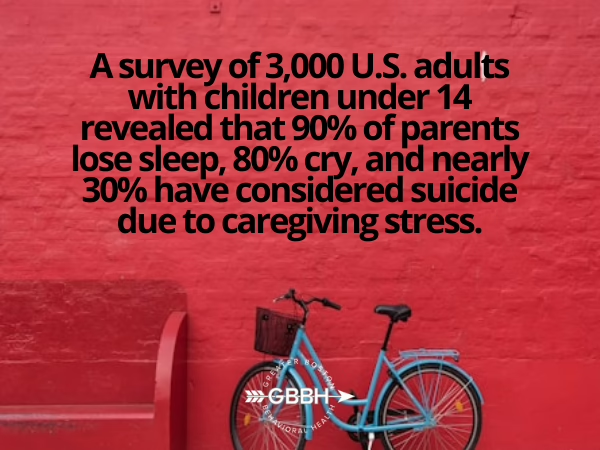Life is a tapestry woven with threads of change. From career shifts to personal milestones, transitions are an inherent part of our journey. While these shifts often herald new beginnings, they can also trigger a whirlwind of emotions and challenges. It’s during these periods of upheaval that our mental health can be particularly vulnerable.
Feeling overwhelmed, anxious, or stressed during life transitions is entirely normal. The key lies in understanding the impact of change on your mental well-being and equipping yourself with effective coping strategies. In this guide, we’ll explore the emotional rollercoaster of transitions, practical tips to build resilience, and when to seek professional help.
Understanding the Impact of Life Transitions
Life transitions, whether anticipated or unexpected, can be emotionally turbulent. They often involve a complex interplay of emotions, ranging from excitement and anticipation to fear and uncertainty. It’s common to experience a rollercoaster of feelings as you navigate these changes.
Common Mental Health Challenges During Transitions
- Anxiety and worry: Concern about the unknown future can lead to heightened anxiety levels.
- Depression: Feelings of sadness, hopelessness, and loss can emerge as you adjust to new circumstances.
- Stress and overwhelm: Juggling multiple responsibilities and adapting to new routines can be overwhelming.
- Loss and grief: Transitions often involve letting go of the past, which can trigger feelings of loss.
- Identity crisis: Changes in roles or circumstances may lead to questions about your sense of self.
Recognizing Signs of Stress and Overwhelm
It’s crucial to pay attention to your body and mind during periods of transition. Recognizing the signs of stress and overwhelm is the first step towards managing them effectively.
Common Signs of Stress and Overwhelm
- Physical symptoms: Fatigue, headaches, muscle tension, changes in appetite, difficulty sleeping.
- Emotional symptoms: Irritability, mood swings, feeling overwhelmed, lack of motivation, decreased enjoyment in activities.
- Behavioral changes: Social withdrawal, procrastination, increased use of substances, difficulty concentrating.
Building Resilience and Coping Mechanisms
Developing effective coping mechanisms is crucial for navigating life transitions with greater ease. By incorporating these strategies into your routine, you can enhance your resilience and emotional well-being.
Developing a Strong Support System
Surrounding yourself with supportive people is essential during times of change. Reach out to friends, family, or trusted confidants to share your feelings and experiences. Joining support groups can also provide valuable connections with others going through similar challenges.
Practicing Self-Care and Mindfulness
Prioritizing self-care is vital for managing stress and maintaining emotional balance. Engage in activities that nurture your mind, body, and soul, such as:
- Meditation and mindfulness practices
- Spending time in nature
- Engaging in hobbies and interests
- Sufficient sleep
- Healthy diet and exercise
Setting Realistic Expectations and Goals
Avoid overwhelming yourself by setting achievable goals. Break down larger tasks into smaller, manageable steps. Celebrate small victories along the way to boost your motivation.
Time Management and Organization
Effective time management can help reduce stress and create a sense of control. Prioritize tasks, create schedules, and eliminate unnecessary commitments.
Healthy Lifestyle Habits
A healthy lifestyle contributes to overall well-being. Ensure you’re getting enough sleep, eating nutritious foods, and engaging in regular physical activity. These habits can significantly impact your mood and energy levels.
Specific Transitions and Their Challenges
Life transitions encompass a wide range of experiences, each with its unique set of challenges. Let’s explore some common transitions and how they can impact mental health.
Career Changes and Job Loss
- Navigating job loss: Coping with financial stress, identity shifts, and uncertainty.
- Career transitions: Balancing excitement with anxiety about new roles and responsibilities.
Relationship Transitions (Breakups, Marriage, Parenthood)
- Breakups: Managing heartbreak, loneliness, and rebuilding self-esteem.
- Marriage: Adjusting to shared responsibilities, communication challenges, and evolving roles.
- Parenthood: Balancing parental responsibilities with personal needs and maintaining relationships.
Moving and Relocation
- Adjusting to a new environment: Overcoming feelings of isolation and homesickness.
- Building a new social circle: Creating connections in a unfamiliar place.
Health Challenges and Chronic Illness
- Coping with a new diagnosis: Processing shock, fear, and uncertainty.
- Managing pain and fatigue: Balancing physical and emotional well-being.
- Adjusting to limitations: Finding ways to adapt to changes in lifestyle and independence.
Loss and Grief
- Processing the loss of a loved one: Dealing with grief, loneliness, and changes in routines.
- Adjusting to life without a significant person: Rebuilding a sense of purpose and meaning.
Conclusion
Navigating life transitions can be a challenging but transformative experience. By understanding the impact of change on your mental health, building resilience, and seeking support when needed, you can emerge from these periods stronger and more equipped to face future challenges.
Remember, it’s okay to not be okay. Prioritize self-care, connect with others, and don’t hesitate to reach out for professional help if needed. You deserve to thrive, even during life’s most significant transitions.
Get Mental Health Treatment in Boston, Massachusetts
Greater Boston Behavioral Health offers comprehensive mental health treatment services designed to empower individuals on their path to recovery and well-being. Our Boston, Massachusetts facility provides a supportive environment where you can focus on healing and personal growth.
Our result-driven mental health treatment programs address a wide range of mental health conditions, including:
- Anxiety disorders
- Depression
- Bipolar disorder treatment program
- Trauma therapy program
- Group Therapy Program
We offer a variety of treatment options to meet your unique needs, including:
- Intensive Outpatient Programs (IOP): Flexible day or evening programs for individuals requiring structured support.
- Partial Hospitalization Programs (PHP): Intensive daytime treatment for those needing more comprehensive care.
- Outpatient Services: Ongoing support and therapy for individuals managing their mental health.
Our team of experienced mental health professionals utilizes evidence-based therapies such as Cognitive Behavioral Therapy (CBT), Dialectical Behavior Therapy (DBT), and Acceptance and Commitment Therapy (ACT) to help you develop coping skills and achieve lasting recovery.
At Greater Boston Behavioral Health, we believe in a holistic approach to mental health. Our programs focus on addressing the whole person, including physical, emotional, and spiritual well-being. Call us at (888)278-0716 today to learn more about our services and how we can help you on your journey to recovery!
FAQs on Managing Mental Health During Life Transitions
What are some common signs of stress during a life transition?
Common signs include fatigue, difficulty sleeping, irritability, loss of interest in activities, and changes in appetite.
How can I build a stronger support system during a transition?
Reach out to friends, family, or join support groups. Building connections with others can provide emotional support and practical advice.
When should I consider seeking professional help for a life transition?
If you’re struggling to cope with overwhelming emotions, experiencing significant difficulties in daily life, or if negative thought patterns persist, it’s time to consider therapy.
How can I manage anxiety during a job change?
Focus on creating a new routine, building a support network among colleagues, and practicing relaxation techniques like deep breathing or meditation.
What can I do to cope with loneliness after a move?
Join local clubs or groups, volunteer, or explore online communities to connect with people who share your interests.
Is it normal to feel overwhelmed after becoming a parent?
Yes, it’s completely normal to feel overwhelmed as a new parent. Prioritize self-care, seek support from partners and family, and consider joining parenting groups.
How can I cope with grief after a loss?
Allow yourself to grieve, seek support from loved ones, consider joining a bereavement group, and practice self-care.
Is it possible to prevent feeling stressed during a life transition?
While it’s impossible to completely avoid stress, building resilience, practicing self-care, and seeking support can help manage it effectively.


